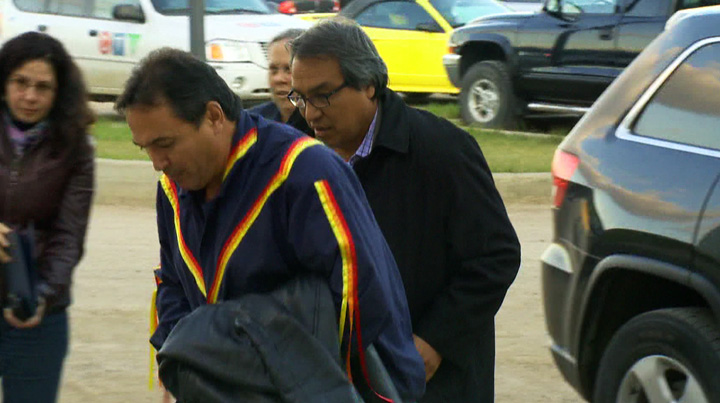REGINA – United Nations special rapporteur on the rights of indigenous peoples, James Anaya, has heard from Saskatchewan while embarking on a major fact-finding mission across Canada.

Anaya’s coast-to-coast mission started last week examines the situation of indigenous peoples in Ontario, Quebec, British Columbia, Alberta, Saskatchewan and Manitoba.
The special rapporteur has emphasized that he aims to address concerns for indigenous peoples’ rights in light of international standards, identify good Canadian practices and those in need of reform.
Along his journey, Anaya is expected to be holding discussions with aboriginal leaders as well as federal and provincial governments.
Following the visit, he will prepare a report which will be presented to the UN Human Rights Council in September 2014.
Part of his mission included appearances in Manitoba and Saskatchewan over the Thanksgiving long weekend.
He arrived in Fort Qu’Appelle, Sask. on Sunday to be welcomed by many including members from Idle No More and the Federation of Saskatchewan Indian Nations (FSIN).
“It’s really important to be a part of this because the United Nations issued a report before on the treatment of indigenous people in Canada, which was largely ignored so hopefully this will be a fresh start,” said Erica Lee, Idle No More youth activist.
“The United Nations has such power to do good across the world so to have him finally here after the years he’s trying to get here is a great honour.”
Many hope Anaya’s final report will place pressure on the federal government to work more closely with First Nations people and solve issues.
“We’re looking for solutions, we feel we have solutions to offer as we move forward and adjusting HIV/AIDS we want to remove the band aids that the systems institutions agencies are putting on aboriginal people and get to the root causes of what’s going on in our communities,” said Margaret Poitras, CEO of All Nations Hope AIDS Network.
The nine-day tour wraps up Tuesday with a press conference in Ottawa where Anaya is expected to release some of his early findings.
UN has been focusing on Canada’s history with its aboriginal community for some time now.
This visit follows up on a 2004 mission to the country by the previous special rapporteur.


Comments